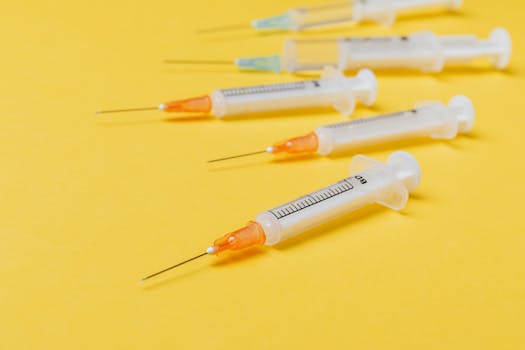Do Vaccines Change Your DNA? Myth Debunked

Do Vaccines Change Your DNA? What Science Really Says
You’ve likely heard the alarming claim: vaccines, especially mRNA ones, can rewrite your DNA like a sci-fi experiment gone wrong. The myth that vaccines change your DNA has fueled debates on X and beyond, with questions like what do DNA vaccines do or how does a vaccine change the body popping up in searches. In this post, we’ll debunk this misconception with hard science, explore how vaccines like mRNA and DNA vaccines work, and clarify their safety. By the end, you’ll understand why your genes are safe—and why vaccines are a health hero. Let’s unravel the truth!
The Origins of the DNA-Changing Vaccine Myth
Where Did This Myth Come From?
The idea that vaccines change your DNA surged during the 2020 COVID-19 pandemic, when mRNA vaccines (e.g., Pfizer, Moderna) debuted. Misinformation on social media misread “mRNA” as DNA-altering, despite no such mechanism. Early confusion about such vaccines, which use DNA plasmids, added fuel, with posts claiming they integrate into human genomes. By 2025, myths persist, with X threads asking do all vaccines now have mRNA in them or how do vaccines work genetically. Globally, vaccine hesitancy tied to genetic fears spans cultures, from U.S. forums to European protests.
Why It Persists
Fear of the unknown drives this myth. With 60% of Americans expressing vaccine concerns (per a 2024 Gallup poll), new tech like mRNA sparks suspicion. The term “DNA” evokes sci-fi tropes (think Mr. DNA Jurassic Park), making do vaccines change your DNA a viral question despite scientific clarity.
Myth 1: Vaccines Alter Your DNA
How Vaccines Work Genetically
How do vaccines work genetically? They don’t touch your DNA. Traditional vaccines (e.g., parvo vaccine, DHPP vaccine) use weakened or inactivated pathogens to trigger immunity, per CDC. What do DNA vaccines do? They introduce a DNA plasmid coding for a protein (e.g., a viral spike), which cells translate into an immune response, not genome integration, per a 2023 NIH study. mRNA vaccines, like COVID-19 shots, deliver temporary RNA instructions that degrade quickly, never entering the nucleus where DNA resides, per Harvard Medical School.
The Science Says No
Do vaccine changes your DNA? No—mRNA and DNA vaccines can’t alter your genome. A 2024 Nature study confirmed mRNA vaccines don’t integrate into DNA, even in rare cases. DNA ligase, an enzyme in genetic research, isn’t involved in vaccine mechanisms. The myth stems from misunderstanding cellular biology—vaccines work outside the genetic code.
Myth 2: All Vaccines Are Now mRNA-Based

Do All Vaccines Now Have mRNA in Them?
Do all vaccines now have mRNA in them? Not at all. mRNA vaccines are specific to certain diseases (e.g., COVID-19, some flu shots), but most, like bordetella vaccine or FVRCP vaccine for pets, use traditional methods (inactivated pathogens or proteins), per FDA. DNA vaccines, like those for Zika trials, are rare and distinct. In 2025, only ~10% of human vaccines are mRNA-based, per WHO.
Variety in Vaccines
Puppy vaccine schedules (e.g., distemper vaccine, parvo vaccine) rely on proven, non-genetic methods. Human vaccines like tetanus or measles use similar tech, debunking the idea that all shots are “new” or DNA-altering.
Myth 3: Vaccines Stay in Your Body Forever
How Long Do Vaccines Last in Your Body?
How long do vaccines last in your body? Not long—mRNA degrades in days, and DNA plasmids from vaccines break down within weeks, per a 2023 Journal of Immunology study. The immune memory they create lasts years (e.g., measles vaccine: lifelong), but the vaccine itself doesn’t linger. How does a vaccine change the body? It trains your immune system, not your DNA, to fight pathogens.
Temporary Effects
Unlike myths suggesting permanent changes, vaccines are transient. Even what are the disadvantages of DNA vaccines? Rare side effects like soreness or fever, not genetic alteration, per NIH. The body clears vaccine components quickly, leaving only immunity.
Practical Tips for Understanding Vaccine Safety
Navigating Vaccine Information
- Check sources: Rely on CDC, WHO, or NIH for facts, not social media claims about do vaccines change your DNA.
- Understand tech: Learn how mRNA and DNA vaccines work—temporary messengers, not genome editors.
- Follow schedules: Stick to puppy vaccine schedules or human immunization plans for proven safety, per American Academy of Pediatrics.
Avoiding Missteps
Don’t fall for conspiracies about vaccines changing your DNA. If concerned, ask doctors about specific vaccines (e.g., bordetella vaccination for pets). What are the disadvantages of such vaccines? Mostly logistical (e.g., storage), not health risks, per WHO.
Conclusion
The myth that vaccines change your DNA is a misunderstanding of modern science—mRNA and DNA vaccines don’t touch your genes, as confirmed by NIH and Harvard studies. From how does a vaccine change the body to what do DNA vaccines do, vaccines train immunity, not alter DNA. Embrace their safety and keep learning. Got a vaccine myth to bust? Share below and join OmniMyths for more health truths!
Frequently Asked Questions
Q: What do DNA vaccines do?
A: DNA vaccines deliver a plasmid coding for a protein to trigger an immune response, per NIH. They don’t integrate into your DNA or alter your genome.
Q: Do all vaccines now have mRNA in them?
A: No, only specific vaccines like some COVID-19 shots use mRNA; most, like distemper vaccine, use traditional methods, per WHO. mRNA vaccines are ~10% of the market in 2025.
Q: How does a vaccine change the body?
A: Vaccines train your immune system to recognize pathogens, creating memory cells, per CDC. They don’t change DNA or permanently alter your body.
Q: How long do vaccines last in your body?
A: Vaccine components like mRNA or DNA plasmids degrade in days to weeks, per Journal of Immunology. The immune memory they create can last years or a lifetime.
Q: What are the disadvantages of DNA vaccines?
A: These vaccines may cause mild side effects like soreness and require complex storage, per NIH. They don’t alter DNA or pose significant health risks.
Q: Do vaccines change your DNA?
A: No, neither mRNA nor DNA vaccines alter your genetic code; they work outside the nucleus and degrade quickly, per 2024 Nature studies.
